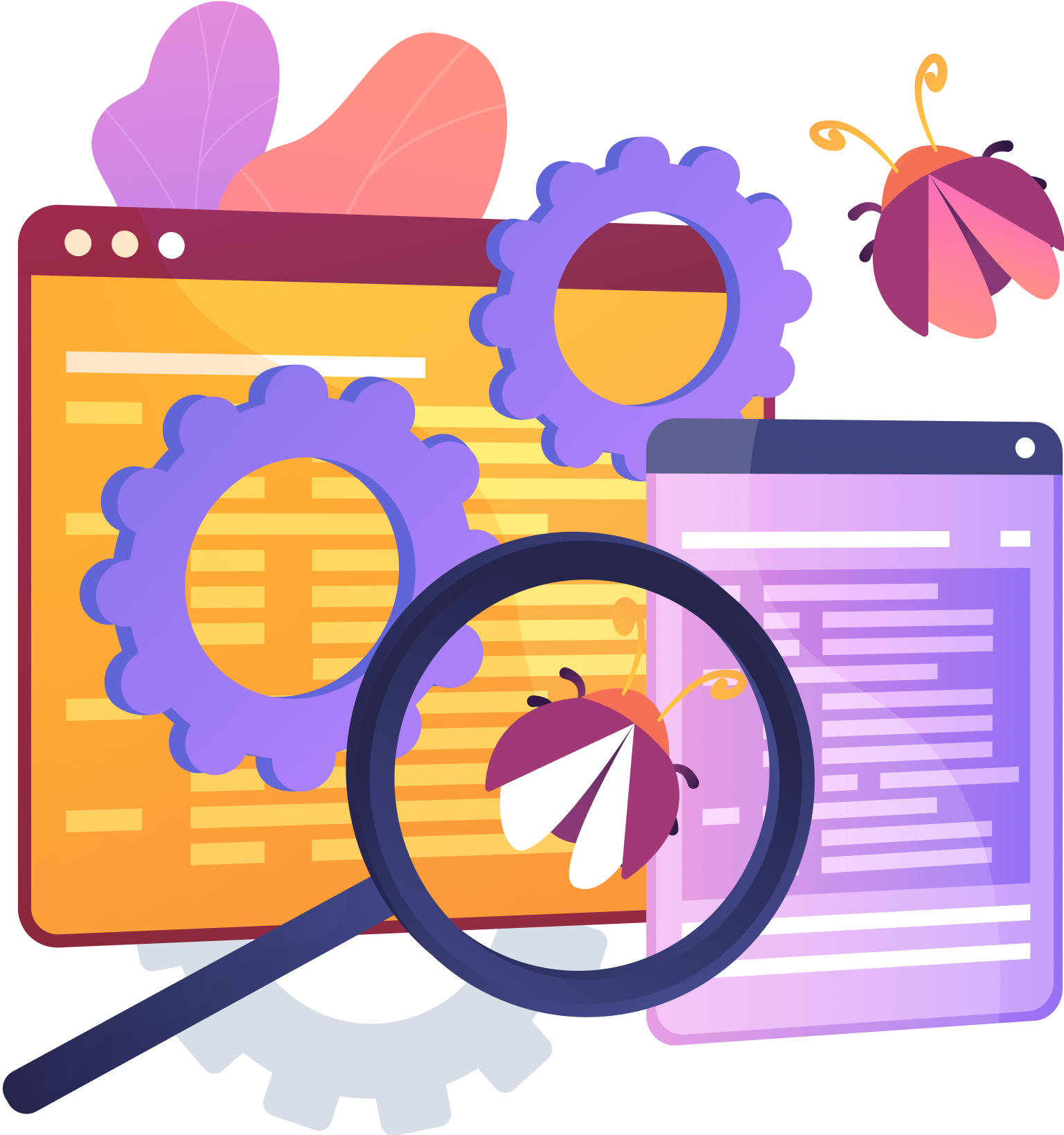Enterprise App Creation Using an Advanced Methodology

In the current era of technology, all activities will take place online. Sounds like you? That is indeed where we are going today. Every day, quick and useful answers are being made.
Companies are using digital technology and special software to stay ahead or keep up with their competition."
People are always looking for new ideas, and they need a new way to build apps even more. Digital solutions have made it easier for workers and customers to talk to each other. It made operations more efficient and led to more unique solutions, making software development even more popular.
What is Enterprise Application Development?
Different ways exist to create custom apps for businesses, such as making apps for mobile devices or websites. A business application's goal is to get rid of problems that keep happening and allow users to do their work quickly and easily.
Automated functions and processes enable users to swiftly accomplish their desired tasks. This is now possible thanks to the growth of cloud technology, which is becoming more flexible and engaging to help both internal and external users.
Creating templated parts at the beginning of the process is important. These parts should be easily customizable. This will lead to a more successful outcome.
The processes involved are complex. Whether it's mobile or web-compatible, its creation with business needs in mind is crucial.
Enterprise Web Application Development
The programming process is an app for big companies that lets users enter information for use within the company. It's an enterprise application development service that runs on a web server and helps keep all the useful features under control. Each type of web app has its own set of features that make it good for certain businesses but not others. A wide range of web apps can help businesses be more productive, keep their data safe, share information, offer product information online, and more.
Companies make web apps for different reasons. It is important for them to know the importance of each type of web app. They should also understand the benefits that each type of web app offers.
Enterprise Mobile Application Development
Enterprise application development involves creating software for small, wireless devices that can be used on mobile phones to assist a business. The main users of business apps are those who work for the company, and their main goal is to make work easier. Enterprise apps work with administrative records and normal data exchanges, just like any other business system.
Therefore, we need to build them with strong security and adaptability in mind. Additionally, evaluating, developing, managing, and integrating software into the company's system are all very difficult tasks.
In the same way, enterprise mobile apps need to be more consistent across all devices and platforms. The user apps do this because, if they make a mistake, the company could lose a lot of money. Different laws and rules impact the distribution of apps, thereby fostering the development of business apps. This is because companies must adhere to the rules set by software stores, such as the App Store's review standards.
READ ALSO- Comprehensive Logistics App Development: An Essential Guide
Methodology For Enterprise App Development
All great app experiences require well-executed app creation. From beginning to end, our mobile experiences give businesses a scalable edge over their competitors. We achieve this by using design thinking and making changes quickly.
When a business hosts online events, it can connect with customers and make money. This allows the business to cater to the needs of its clients.
The development process divides a project's lifecycle into many stages that happen one after the other. Some of these stages are required, and the order in which they are completed depends on the project's needs. When building and growing digitally native businesses, designers use technology in every step of the process. Innovation services (future experimental examples) and efficient engineering services (development and maintenance) are what they offer to clients.
But it's not just the beautifully made software or the brilliantly designed user experience that makes these devices stand out.
Choosing the right business app development services for a product company depends on things like team size, goals, and other factors." This list of the most well-known and popular business software solutions will help customers choose the best one for their team.
Waterfall
Waterfall, which is broken up into clear stages or steps, is the most common and organized choice. Before proceeding, developers and clients must fully understand the project's needs and goals, making this the most crucial step. It includes figuring out what the project needs and how big it will be, evaluating those needs, designing, building, testing, deploying, and managing. Usually, we follow these fairly strict steps in this order.
Feature-Driven Development (FDD)
One way to do this is through feature-driven development (FDD). FDD follows a five-step process to create usable software.
The first step is to make an overall model. Next, make a list of features. Then, use each feature to guide your plans.
The majority of the work will be done in the last two steps, which are planning and building by feature. At every step, you should report on the status, which helps you keep track of the work, results, and mistakes.
Agile
The Agile strategy puts a lot of weight on making clients happy. Teams can do this by consistently providing products that are functional, tested, and prioritized. It was based on FDD and is meant to adapt to change and the need to make software more quickly.
The strategy stresses involving users in the entire process of developing business mobile apps, being flexible instead of sticking to a set plan, and valuing people and their connections. People are more important than tools; interactions are more important than documents; and working software is more important than documentation.
Scrum
Scrum is an iterative method of software development that follows Agile's core ideas and mindset and puts the team first. It stresses how important it is for developers and teams to work together often and closely. Because this method requires management, experienced, focused team members may find it most effective when applied to smaller projects. Meetings are very important in the Scrum method, and every sprint has daily planning talks and demos to show progress and get feedback.
Conclusion
Enterprise application development is an important part of any IT system that aims to do the same thing. An extensive computer system assists a business by adhering to specific regulations and leveraging specific technologies. It makes things run more smoothly and helps the people who work in one or more business areas do their jobs better.
It also talks about issues that come up when big businesses, small to medium-sized businesses, or state institutions try to run their businesses. Employees at a company have access to different services that are designed for their specific tasks. These services include content management, security tools, human resource management, app integration, and more.
FAQs About Enterprise App
Q.1- What are Enterprise Apps?
Enterprise applications are intricate software solutions designed to cater to the diverse requirements of contemporary businesses. These programs do a lot of different things, such as human resource management (HRM), business resource planning (ERP), and customer relationship management (CRM). On the other hand, businesses design enterprise apps to meet their specific needs. They offer scalability, integration, and customization choices to make operations run more smoothly.
Q.2- Why are Enterprise Apps Important?
In today's competitive business world, it's impossible to say enough good things about corporate apps. In companies, these apps help people work together better, be more efficient, and get more done. Enterprise apps help businesses adapt to changing market conditions and grow by simplifying tasks, letting them make decisions based on data, and making communication smooth. To stay ahead in a digital world that is always changing, you need to use business technology.
Q.3- What Features Should Enterprise Apps Include?
When choosing corporate apps, it's important to put features that help your business reach its goals and meet operational needs at the top of the list. Every enterprise app should have basic features like scalability, protection, and the ability to work with other apps.
User experience (UX) design is also crucial for ensuring that employees use and enjoy the software. As technology changes, new trends like AI-driven analytics, IoT integration, and mobile optimization are changing the way business apps work, opening up new ways to be creative and save time.
Q.4- How Do You Choose the Right Enterprise App for Your Business?
Picking the right business app vendor is a choice that needs a lot of thought. When you're evaluating, you should look at things like image, scalability, and customer service. You need to make sure that the app's features fit the needs and growth path of your business. Reading reviews, asking for demos, and asking for recommendations are all good ways to do research that will help you make a choice that will be good for your business in the long run.
Q.5- What are the challenges in implementing enterprise apps?
Setting up business apps can be challenging due to issues such as complex data migration, integration problems, and resistance from employees. To get past these problems, you need to carefully plan, get buy-in from all stakeholders, and give your employees thorough training programs. Support and maintenance after the initial implementation are also very important to make sure that business apps in your organization continue to work well and be successful.









